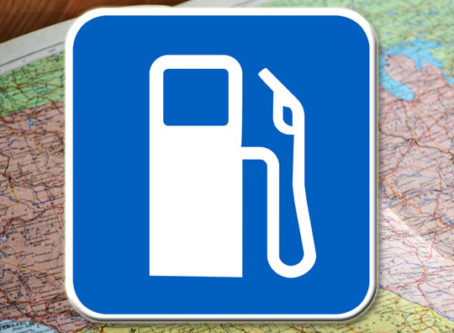Officials in 14 states adopt, consider more revenue via alternative-fuel vehicles
As states continue to wait on the federal government to reach a transportation funding deal, work continues at statehouses to come up with their own solutions to help boost transportation funding. Among the options getting attention in legislatures from Washington state to New Hampshire is tapping alternative-fuel vehicles for additional revenue.
In an effort to encourage people to pursue more fuel-efficient options, many states now offer financial incentives for hybrid and electric vehicle owners. As popularity for such vehicles is anticipated to grow, state officials are concerned about the lost transportation revenue that results from fuel-efficient vehicles.
According to the National Conference of State Legislatures, 20 states impose additional fees for the registration and licensing of certain affected vehicles. Below are some notable efforts at statehouses to raise more revenue from hybrid and electric vehicles.
Alabama
New annual flat-rate registration fees on electric vehicles are on the books in Alabama.
Included in a new law to raise the state’s fuel tax rate by 10 cents is an annual tax on electric vehicles of $200. Additionally, HB2 will collect an annual tax of $100 on plug-in hybrid vehicles.
The first $150 collected from electric vehicles and the first $75 from hybrids will be divvied up between the state, counties and cities. The state would receive two-thirds of the revenue, with counties getting one-quarter, and cities claiming the rest.
The remaining revenue will be used to build charging stations across the state.
Arkansas
Gov. Asa Hutchinson has signed into law a bill to raise road revenue via a new wholesale fuel tax, increased license fees on hybrid and electric vehicles, and through other state revenue.
Previously SB336, the new law is estimated to raise nearly $100 million annually for the state Department of Transportation. Increasing registration fees for hybrid and electric vehicles will raise $1.9 million.
Illinois
Two House bills target electric and hybrid vehicles for additional road revenue.
The state already collects a $35 fee over two years on electric vehicles.
HB2053 would set a registration fee for electric vehicles at $216 each year. Additionally, a registration fee for hybrid vehicles would be set at up to $158.50 annually.
HB2752 would charge owners of hybrid vehicles $196 annually.
Iowa
Electric vehicles are one source of revenue being eyed in Iowa to help address transportation funding needs.
An Iowa Department of Transportation report shows a nearly $317,000 hit to the state’s road use tax fund one year ago. Among the options to help address the funding dip is adding taxes for electric vehicles.
The state pays for infrastructure needs largely through a 30.7-cent excise tax on gas and 32.5-cent tax on diesel. It is estimated the taxes will raise $650 million for the current fiscal year.
The Iowa DOT report predicts that fuel tax revenues will decrease in the decades ahead as more people purchase alternative fuel vehicles.
In an effort to prevent some losses in tax revenue the agency recommends multiple methods to raise new revenue. The methods listed are:
- an excise tax based on per kilowatt-hour of electric vehicle charging.
- an annual registration fees for battery-electric vehicles, plug-in hybrid electric vehicles.
- a fuel excise tax on hydrogen fuel cell electric vehicles.
The agency is proposing to collect a $130 annual registration fee on electric vehicles. A $65 yearly fee would be charged to hybrid vehicle registrations.
Multiple pieces of legislation have been introduced at the statehouse to tap alternative fuel vehicles for additional revenue.
HSB197 is among them. As outlined by the state DOT, the bill would add a supplemental registration fee on electric vehicles.
HF725 would do the same, but the annual fees would be phased in over three years.
The bills are in committee.
Kansas
The House voted on Wednesday to advance a bill to impose a new annual vehicle registration fee of $75 for certain plug-in hybrid electric vehicles. A $150 fee would be charged for all-electric plug-in vehicles.
The fees estimated to raise $610,000 initially would kick in on Jan. 1, 2020.
HB2372 now heads to the Senate where a similar version, SB189, is in committee.
Minnesota
Legislation introduced in both statehouse chambers would more than triple an annual fee for owners of electric vehicles.
Sponsored by Sen. Jeff Howe, R-Rockville, SF1409 would raise the surcharge for electric vehicles from $75 to $250. Hybrid vehicle owners would be charged a new fee of $125.
Gov. Tim Walz included in his budget proposal a plan to raise the fee on electric vehicles to $100. The revenue would be used to help cover costs for charging stations.
The House version is HF2026.
The bills are in committee.
Missouri
A House bill covers how the state collects certain vehicle registration fees.
HB500 would transition noncommercial motor vehicle registration fees from a taxable horsepower to a miles-per-gallon vehicle registration fee.
The baseline fee for vehicle registration would increase to $24. The bill would change the assessed fee to be based on the vehicle’s city/highway miles-per-gallon rating.
Vehicles with a rating greater than 29 mpg would be charged an additional fee. Vehicles with at least a 60-plus mpg rating would pay another $210 each year. Affected vehicles now pay an annual fee of $75.
The change is estimated to raise $100 million annually for state roads.
Nebraska
The state of Nebraska collects a $75 annual fee for alternative-fuel passenger vehicles.
LB366 would raise the rate to $85 in 2020. Additional increases to $95, $105 and $115 would be imposed through 2023. The rate would settle at $125 by 2024 and each year thereafter.
New Hampshire
A proposal in New Hampshire would target fuel-efficient vehicles to replace declining tax revenue for roads.
Vehicles with gas mileage over 20 miles per gallon would have a vehicle registration surcharge. The tax would top out at $100 annually for vehicles that get more than 50 mpg.
North Dakota
One bill nearing passage at the statehouse would boost transportation funding via electric and hybrid vehicles. Additional revenue would be used to help cover costs for road upkeep and construction.
House lawmakers voted to approve collection of a $120 annual “road use fee” on electric vehicles. Hybrids would see a $50 yearly fee.
SB2061 has been sent back to the Senate for approval of changes to the fee on electric vehicles. The Senate voted to collect a $110 annual fee on affected vehicles.
SB2061 would also set up a legislative study on the infrastructure needs for electric cars.
Revenue estimated in excess of $200,000 annually would be used for state and local roads, and transit.
If agreed upon by both chambers, the bill would head to the governor’s desk.
Ohio
The Senate has approved the proposed two-year transportation budget.
The plan includes a 6-cent fuel tax increase. Additionally, electric vehicle owners would pay a $175 yearly fee. Hybrid vehicle owners would pay $75 annually.
HB62 has moved back to the House for consideration. The budget plan is expected to go before a conference committee of select members from both chambers to settle differences in the versions.
The bill must be approved by the end of this month – before the new budget year begins.
Texas
A bill in the House Transportation Committee would impose an additional fee for the registration of electric and hybrid vehicles.
HB1971 would collect an additional fee of $200 for electric vehicles and $100 for hybrid vehicles.
The bill is estimated to raise $55 million over the next two years for the state’s highway fund.
Washington
The House Transportation Committee voted to advance a bill to collect additional revenue from electric vehicle owners.
SB5971 would double the fee for electric vehicles from $150 to $300. Additionally, a new $50 fee would be charged for the renewal of hybrid electric vehicles.
The bill has moved to the Senate Ways and Means Committee.
Wyoming
Gov. Mark Gordon has signed into law a bill to collect more revenue from alternative-fuel vehicles.
State law requires plug-in electric cars to have a decal costing $50 each year.
HB166 increases the annual fee for plug-in electric vehicles to $200.
A provision was removed for hybrid vehicle owners to need a sticker costing $100 annually.









